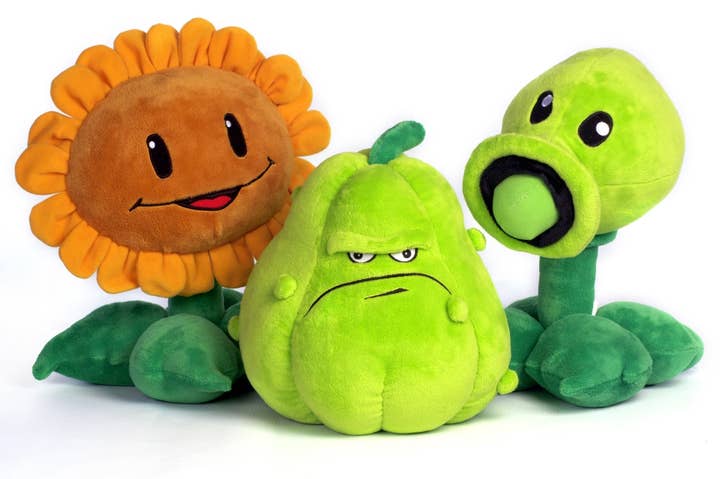Challenges in China have an upside
GDC 2013: PopCap exec explains how Plants vs. Zombies benefited from rampant piracy, clones, and counterfeit toys
PopCap head of strategic development James Gwertzman spent the past five years in China, helping the casual game company establish a foothold in a potentially massive market. In his GDC 2013 presentation today, Gwertzman acknowledged that PopCap was far from alone in seeing a massive potential market in China. However, PopCap's Chinese excursion is a bit more unique in that it has been a success.
"China is littered with the corpses of western companies who tried to go over there and failed," Gwertzman said, adding that companies who go into China typically run into the same problems. They try to grow too fast and hire the wrong people. They copy the same strategies that worked in the West. And they set unrealistic expectations, so companies who aren't committed to the expansion give up when the early numbers don't show immediate returns.
If a company is just going into China to make a lot of money, then Gwertzman said it's going for the wrong reason. The right reason to go, he said, is that China is a "giant sandbox of innovation," where many companies' biggest complaints are actually blessings in disguise.
Companies complain that there's too much piracy in China, Gwertzman said. There are too many competitors, too many clones, high staff turnover, and a generally low quality of product in the marketplace. All of those can actually become boons, as Gwertzman said piracy "also happens to be an incredibly efficient way to distribute your IP very widely." The wealth of clones and competitors actually spurs iteration, with Gwertzman saying it can give developers a chance to quickly see what works and copy it for their own business models. As for high staff turnover, that's an opportunity to consistently improve the quality of talent at the studio. And the low quality of product translates to an ability to launch a minimum viable product much earlier than is acceptable in the West, giving developers a chance to quickly see what works.
Even an abundance of counterfeit merchandise can help a company. Gwertzman talked about the popularity of Plants vs. Zombies in China, and how knock-off plush and vinyl toys crowded Chinese stores. That actually convinced PopCap to get into the merchandising business legitimately, and now it represents 30% of the company's profits in China.
Attempts to crackdown on that counterfeiting also wound up counterproductive, Gwertzman said. PopCap worked with local authorities to raid one massive counterfeiter, confiscating 400,000 ersatz PvZ toys in the process. Unfortunately, that quickly dried up the supply chain, and when PopCap tried to find buyers for its own legitimate PvZ wares, store owners turned them down, reasoning that the lack of counterfeit toys on shelves meant people were no longer interested in the brand.

